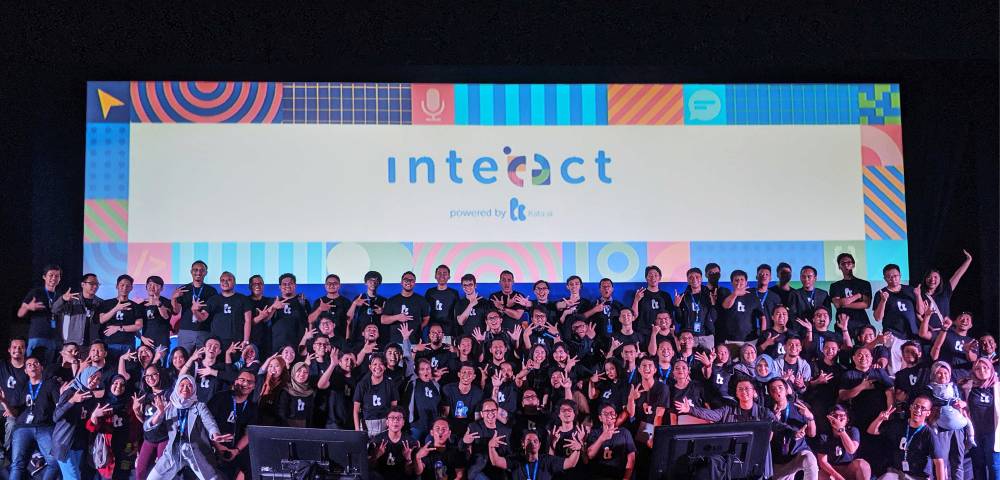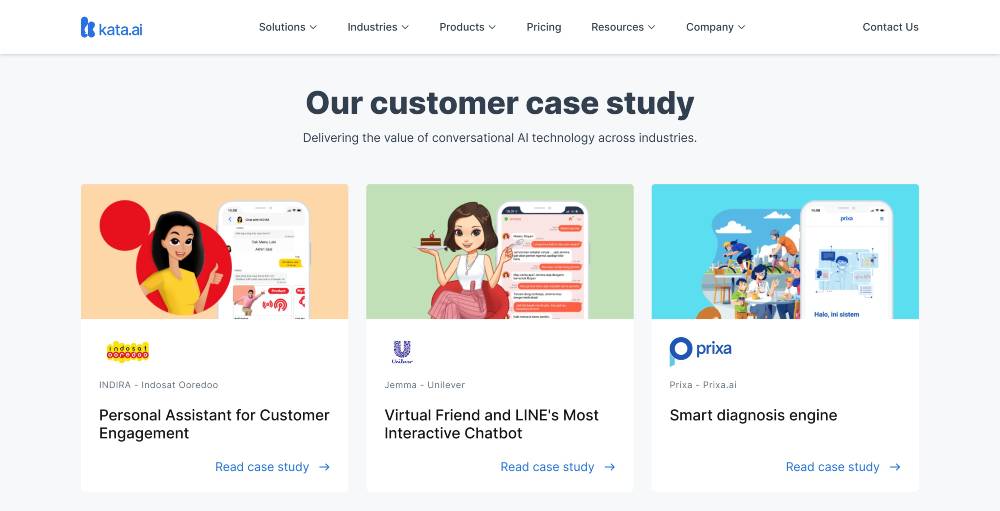Kata.ai's Irzan Raditya shares advice on acquiring 120+ enterprise clients
Kata.ai's Irzan Raditya shares advice on acquiring 120+ enterprise clients

Throughout his career, Kata.ai co-founder and CEO Irzan Raditya has established several companies and brought to life a variety of business ideas.
Prior to Kata.ai, one of Indonesia’s first artificial intelligence (AI) startups, Irzan founded Amplitweet, a marketing service for musicians, in 2011. He also co-founded clothing line Cape & Fly, as well as Styyli in 2013, an app that connected fashion enthusiasts, brands, and designers. Another one of his ventures was Rumah Diaspora, an app that helped Indonesians find accomodations abroad.
The entrepreneur shares that when he was first starting out, he would do things based on his intuition and by examining market trends.
Although his past startups have since closed down, without the experience of building and leaving those ventures behind, Irzan believes he wouldn't have been able to make Kata.ai the success it is now.
Launched in 2015 as virtual personal assistant called YesBoss, the company pivoted to offer conversational AI solutions at scale for large enterprises. The startup's tech allows brands to serve incoming customer queries using chatbots on various channels such as WhatsApp and Instagram DMs.
To date, Kata.ai has served more than 120 enterprise clients which include FMCG giant Unilever Indonesia, e-commerce brand Lazada Indonesia, and the country's largest telco Telkom Group. The startup claims to help customer support agents serve a whopping 18.6 million customers each month. Because of this, companies are able to increase their agents' productivity by 97% while saving 30% in costs yearly.
“It is a journey of discovering yourself and, at the same time, of solving problems out there while maintaining a sustainable business,” says Irzan.
In an interview with ContentGrip, the CEO, who started his entrepreneurial journey during university in Berlin, looks back and shares the most important lessons he's learned.
Sharing the load

For Irzan, one of the greatest lessons he's come to learn about running an AI-powered martech business is that nobody can do it alone. Founders should partner up with a reliable co-founder to split responsibilities with.
“I learned this from the three big failures of my past businesses. That is why I brought in not only one co-founder, but three, with whom I split responsibilities. One is doing tech, the other is doing business, and the last does operations,” he says.
Aside from taking on different roles and tasks within the company, all co-founders must be equally committed to the company’s mission, Irzan adds.
He warns that commitments can change with time, which might end with co-founders walking out of the business when they lose interest in the venture, or when it no longer aligns with their responsibilities. When this happens, Irzan advises the remaining co-founders to keep moving forward.
“Life must go on, as long as you still have that passion and belief in the business,” he says.
Building a customer base

At Kata.ai, the team's audacious goal is to make people’s lives easier in multiple ways. By empowering businesses with AI, the firm is also indirectly serving the consumers linked to those businesses. By helping businesses enhance and streamline their operational processes, consumers can get better responses to their questions and, on a larger scale, commerce can be made more inclusive, as tools such as messaging apps can be used to better serve consumers.
Irzan adds that being able to deliver value is one of the most crucial factors of maintaining a strong customer base.
“You need to make sure that clients achieve their KPIs and ROI because once they are happy, you can easily cross-sell or up-sell,” he says.
Creating value for clients should start at the very beginning of the venture because those first few clients will refer your startup to other clients.
Further, once you have provided a positive experience for early clients, you can use their projects as case studies to show as evidence that your company is able to deliver a competent product or service, Irzan says. He adds that martech startups can also organize events where clients are invited to speak. This can help to highlight their positive experience with your brand.
He notes that a common mistake for martech startups is focusing on growth over retention. According to Irzan, the latter is key for those looking to build a sustainable business. The entrepreneur shares that his magic number for net dollar retention (NDR) is 110%, which means that customers who were using the product last year stayed with the firm and even increased their purchases through cross-sell or up-sell activities.
One of the key ways he was able to increase Kata.ai's NDR was by separating his sales team into "hunters" and "farmers." The former works on capturing new accounts while the latter focuses on serving the existing customer base. After deploying this model, Kata.ai's NDR increased significantly, says Irzan.
When it comes to expanding beyond the current customer base, Irzan suggests leveraging multiple marketing streams, such as Google and LinkedIn, and using methods such as social media ads and search engine optimization to make your brand more discoverable. Tech companies can also consider participating in events like webinars and roundtables to strengthen their industry networks, he adds.
See: 29 smart B2B content marketing examples and success stories
Engaging with customers

Martech startups must stay up-to-date with the needs and feedback of clients. To do this, Kata.ai created Slack communities to manage its system integrators and customers, Irzan explains. These communities allow Kata.ai to interact with customers on a daily basis, which allows the team to gather feedback. This feedback is then evaluated monthly to understand different demands and which areas should be prioritized.
Other than sifting through customer feedback, Irzan adds that startups must also go through their own data to discover what must be optimized. Data, for example, can reveal how clients use certain features or products.
“Sometimes, customers can articulate what they want; sometimes, they cannot. At other times, the data will speak louder than customer feedback,” he explains.
When data shows that clients rarely use a specific feature or product, just do away with it, he adds. Irzan highlights that building a successful business is not always about adding new features or products, but learning how to do more with less.
Lastly, martech brands must take note of trends within the business-to-business (B2B) and software-as-a-service (SaaS) market. Founders need to learn from companies in the industry that occupy a similar niche.
He says, “I believe that B2B is not a winner-take-all space. Hence, we can learn from other players in the market."
Save time and money when producing high-quality branded content. ContentGrow helps teams work with perfectly-matched freelance writers and journalists at preferred rates. Fill out the form below to get your own talent list or visit the site to get started.




